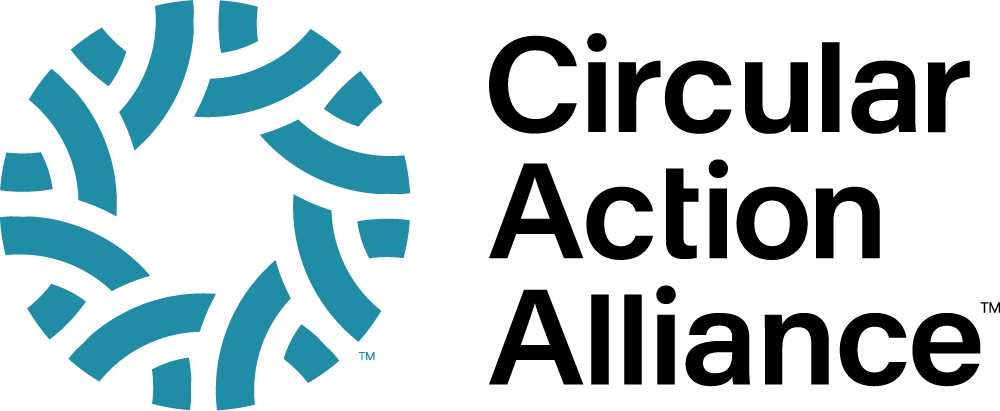
Producer Resource Center
CAA has assembled resources to help producers better understand and prepare for their obligations in states that have enacted EPR laws for paper and packaging. Producers are encouraged to visit the individual state pages under “States” for more detailed information and to subscribe to email updates to stay on top of the latest developments.
Determining Producer Obligations Under EPR Laws
There are two primary questions businesses need to ask that will help determine if they are obligated under the EPR laws:
Is the material associated with my products covered by the EPR laws?
Is my business the responsible producer for those materials?
New Resource: CAA has released guidance to help producers answer these questions for Oregon and Colorado. Producers with obligations in Colorado were required to register with CAA by October 1, 2024. Producers with obligations in Oregon must submit their first supply report by March 31, 2025.
Please note that CAA guidance is not meant to constitute legal advice, and CAA assumes no responsibility for the decisions made by producers in determining their obligations. CAA suggests that producers work with their attorneys to review the relevant statutes, rules and regulations to determine their responsibilities.
To comply with producer registration requirements under California, Colorado, and Oregon EPR laws for paper and packaging products, covered producers must register with CAA unless the producer qualifies for an exemption or the producer intends to submit an individual compliance plan, under applicable law. CAA was required to provide the Oregon DEQ with a list of registered producers as part of CAA’s revised program plan, submitted on September 27, 2024. Regulations in Colorado required producers to register by October 1, 2024. Producers who did not register by that date may be subject to enforcement. CAA will also be submitting a list of registered producers to the Colorado Department of Public Health & Environment as required. Producers in those states who missed the deadline need to still register with CAA.
Only registered producers will gain access to CAA’s producer education forums, including monthly producer working group meetings, data reporting preparation sessions, and a producer guidebook that will include detailed information on reporting and fees.
The Covered Producer Registration Form requires the following information:
Confirmation the company is an obligated producer based on its understanding of the legal definitions.
Producer’s legal business name.
States in which the company is likely to be considered an obligated producer.
Primary contact’s email address and phone number. This will enable CAA to notify your company when it is time to accept the applicable requirements of CAA’s producer responsibility program plans.
Companies will have an opportunity to update information if needed.
Producers who complete CAA’s registration form will be considered registered with CAA. The primary contacted listed will receive a confirmation email upon completing the registration form. Please save this email for your records.
Producer Registration
Producer FAQ
-
Each company must review the producer definition under each state’s packaging EPR law and determine whether it is a covered producer in California, Colorado, and/or Oregon. CAA is not able to provide legal advice or make this determination for you.
However, CAA has developed guidance to help businesses answer the two primary questions they need to ask that will help determine if they are obligated under the EPR laws:
Is the material associated with my products covered by the EPR laws?
Is my business the responsible producer for those materials?
Please review CAA’s guidance materialsfor further information.
Please note that CAA guidance is not meant to constitute legal advice, and CAA assumes no responsibility for the decisions made by producers in determining their obligations. CAA suggests that producers work with their attorneys to review the relevant statutes, rules and regulations to determine their responsibilities.
Relevant Statutes:
-
To comply with producer registration requirements under California, Colorado, and Oregon EPR laws for paper and packaging products, covered producers must register with CAA unless the producer qualifies for an exemption or the producer intends to submit an individual compliance plan, under applicable law.
Regulations in Colorado required producers to register by October 1, 2024. Producers who did not register by that date may be subject to enforcement. CAA will be submitting a list of registered producers to the Colorado Department of Public Health & Environment following the October deadline. CAA will be submitting a list of registered producers to the Colorado Department of Public Health & Environment as required.
CAA was required to provide the Oregon DEQ with a list of registered producers as part of CAA’s revised program plan, submitted on September 27, 2024.
Producers in these states who missed the deadline need to still register with CAA.
Only registered producers will gain access to CAA’s producer education forums, such as the Producer Working Group (PWG), and receive detailed guidance to support data preparation and reporting.
-
California, Colorado, Maine, and Oregon EPR laws have different fee collection requirements and timelines. Oregon will be the first state where producers have fee obligations when the program begins on July 1, 2025. Fee obligations in Colorado will begin in January 2026. In California, fee obligations start in January 2027.
-
Fee schedules will depend on several factors, including but not limited to state needs assessment findings, rulemaking decisions, the scope of each state’s legislation, and approved program plans.
In Oregon, the first state to require producers to pay fees, CAA has provided interim base fee estimates for three scenarios in its September program plan submission. Producers will have increasingly granular fee estimates available in the December program plan to budget for payment when the program starts, July 1, 2025.
Producers can stay on top of the latest fee payment information by registering with CAA. Other stakeholders can receive news and information through CAA’s newsletter and by attending CAA’s quarterly stakeholder webinars.
-
Each state will have specific reporting categories for all materials in scope of the program, whether or not they are determined to be recyclable. Producers will report the type and weight of their covered materials into these categories.
Producers can expect detailed guidance on reporting to be released in late-October 2024. Only registered producers who have a signed a Participant Producer Agreement (PPA) with CAA will be able to access the reporting guidance. The PPA outlines the terms and conditions between producers and CAA and will be available to registered producers in late-October.
For Oregon, producers will need to report data covering the 2024 calendar year on March 31, 2025. In California and Colorado, producers will begin reporting August 31, 2025, submitting data covering Q1-Q2 of 2025.
-
Producers who register with CAA will be notified of upcoming requirements and any requests for information or follow-up conversations with CAA. Covered producers should identify a primary contact and/or authorized representative for their company by filling out the Compliance Contact form. The primary contact will be the first point of contact for communications from CAA. The authorized representative is authorized on behalf of the producer to bind the company, sign legal contracts, and submit material supply data to CAA.
CAA is also reaching out to national and state trade associations, business groups and Chambers of Commerce to raise awareness for the organization, regulatory processes and milestones, and producer requirements.
In addition, CAA hosts webinars open to all stakeholders and producers to raise awareness of developments in the regulatory processes and upcoming requirements in each state.
CAA will share more information in the future about formal opportunities to participate in the organization, prior to registration deadlines and plan implementation.
-
Retailers may have unique obligations under EPR programs. Across states, if a retailer has private label products that use covered materials, or that are covered materials themselves (e.g. foodware), that retailer will be an obligated producer. Retailers may also work with the owners of the brands they sell to provide information about products that were sold in an EPR state. Lastly, retailers and wholesalers in California may have additional reporting requirements for covered materials that CAA is working to clarify with CalRecycle.
Please consult with your legal counsel if you are unsure whether you are a covered producer. CAA is unable to provide legal advice.
-
Producers can switch their primary contact information as needed. Please email Producer.Support@circularaction.org with your name and company, and name, title, email address, and phone number of the new contact.




